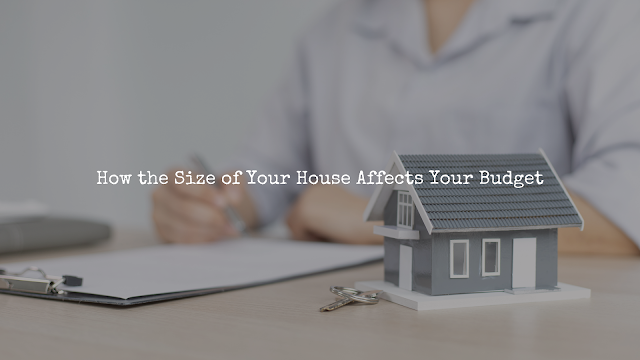Reading
1 Comment
How the Size of Your House Affects Your Budget
It’s time to buy a home, and you have all your financials in order. You have an idea of what your dream house looks like, but does that image fall in line with how much you can actually afford in the way of buying a home?
Calculate to Check
How much house you can afford depends on the relationship between your income and mortgage.
Using a house payment calculator will take in many factors to determine what you can afford to pay a month, such as monthly income, monthly debt payments, and credit score.
Utilizing a tool like this allows you to make adjustments and play with numbers to plainly see what price range will not stretch you thin financially.
Look At Your Debts
If you want to afford a bigger house, take a look at your debt-to-income ratio as that affects affordability. This number is your total monthly debt payments divided by your gross monthly income before tax.
Lenders often use the 28/36 rule as a sign of a healthy DTI. This means you won’t spend more than 28% of your gross monthly income on mortgage payments and no more than 36% on total debt payments.
If your DTI is higher than the 28/36 rule, some lenders may still approve you for a loan. However, they can charge higher interest rates and add extra fees like mortgage insurance to protect themselves in the event you default on the loan.
A Good Rule of Thumb
One rule often cited is the 25% rule, that you should never spend more than 25% of your monthly take-home pay (after taxes) on monthly mortgage payments.
This percentage includes principal, interest, property taxes, home insurance, private mortgage insurance, and homeowners association fees, if applicable. With larger homes come other larger bills to consider.
Maintenance is More Costly
Bigger homes will require more upkeep, as there are more opportunities for something needing repair. More than one bathroom heightens the likelihood of burst pipes, a larger lawn will call for more in-depth landscaping needs in terms of frequency and time it takes for routine care.
Though a larger home provides more of living space, it calls for more money to be allocated to care for that living space.
Utilities are Higher
Heating a larger home will take much more power than heating a smaller one. Likewise, paying for water and electricity to flow to a larger amount of rooms ups utility bills.
Be sure you know the typical utility costs for any home you’re looking for, and how they vary by season. You’ll want to factor these costs into your monthly budget.
Property Tax will Differ
Property taxes are not necessarily based on the square footage of your home directly, but rather on the market value of the home.
A larger home will garner a higher market value, and therefore higher property taxes. The market value is determined by a government assessment or appraisal of the worth of the property that is based on a variety of factors like design characteristics, amenities, appliances, and square footage.

1 Comments
Agree po ako . Nagdedepende po talaga ang ang size ng ating mga bahay o planong bahay sa ating budget . Kaya nararapat na pag-isipan at paghandaan ang mga bagay na katulad nito .
ReplyDelete